-
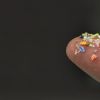 +42 +1
+42 +1Scientists reviewed 7,000 studies on microplastics. Their alarming conclusion puts humanity on notice
Global action is urgently needed to tackle microplastic – and the problem has never been more pressing.
-
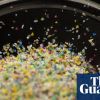 +24 +1
+24 +1Microplastics found in every human testicle in study
Scientists say discovery may be linked to decades-long decline in sperm counts in men around the world
-
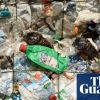 +26 +1
+26 +1‘They lied’: plastics producers deceived public about recycling, report reveals
Companies knew for decades recycling was not viable but promoted it regardless, Center for Climate Integrity study finds
-
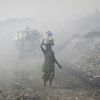 +50 +1
+50 +1The world is awash in plastic. Oil producers want a say in how it's cleaned up
Almost every piece of plastic is made from fossil fuels. Fossil fuel companies, plastic producers and some consumer goods companies could weaken the treaty.
-
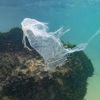 +21 +1
+21 +1Plastic pollution in oceans has reached 'unprecedented' levels in 15 years
Plastic pollution in the world's oceans has reached "unprecedented levels" over the past 15 years, a new study has found, calling for a legally binding international treaty to stop the harmful waste.
-
 +16 +1
+16 +1Here's how many times you need to reuse your reusable grocery bags
The battle against the single-use plastic bag may not be won but it’s definitely under way. Restrictions on their use are in place in almost a dozen US states and in many other countries around the world. And in many cases, these efforts have been successful at eliminating new sales of thin, wispy plastic bags that float up into trees, clog waterways, leech microplastics into soil and water and harm marine life. (Of course, these restrictions don’t address the plastic bags already out there that will take centuries to decompose.)
-
 +21 +1
+21 +1Still red, but also green: This year's Remembrance Day poppies are biodegradable
This year, there's an environmentally friendly take on the poppies worn in the lead-up to Remembrance Day. For the first time, the Royal Canadian Legion is offering biodegradable poppies, as well as wreaths. Brian Harris, who leads the legion's poppy campaign in Ontario, said the 2022 symbols of support for veterans are made with cotton velvet, bamboo, non-woven fabric and some string.
-
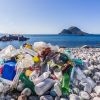 +12 +1
+12 +1Why Plastic Pollution Is a Producer Responsibility
We won’t be able to stem the tide of plastic waste until manufacturers are held accountable for their products.
-
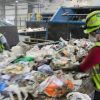 +26 +1
+26 +1Plastic recycling a "failed concept," study says, with only 5% recycled in U.S. last year as production rises
Greenpeace USA blasted industry claims of creating an efficient, circular economy as "fiction."
-
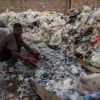 +16 +1
+16 +1How Coca-Cola, Unilever, and Others Delay Action on Plastic
When a huge plastic producer like Coca-Cola says it’s working to solve the plastic crisis, what does that really look like? An investigation published Friday by Bloomberg documents how one initiative in Ghana was used by some of the world’s biggest plastic producers to battle against threats of plastic bans, while failing to deliver on some of its key promises.
-
 +19 +1
+19 +1Canada To Ban Production, Import Of Single-Use Plastics Starting In December
Canada announced Monday it will ban the production and import of “harmful single-use plastics” starting in December in an effort to curb plastic waste and pollution. The new guidance bans plastic checkout bags, cutlery, food containers, ring carriers, stir sticks and straws, with few exceptions.
-
 +25 +1
+25 +1Robot fish could solve the ocean's microplastic pollution problem
A fish-shaped robot that can collect tiny pieces of plastic waste has been developed by scientists at Sichuan University, China. The bot uses light from a laser to flap its tail side-to-side and has a body that can attract molecules found on microplastics, causing them to stick to it as it swims past.
-
 +24 +1
+24 +1The federal government is planning to phase out single-use plastics at national parks
The U.S. Interior Department, which helps oversee the country's national parks, says it is planning to phase out single-use plastics on its land and facilities by 2032. The agency would be tasked with finding alternative materials to disposable plastics, such as cutlery, bags, cups, bottles, straws and food containers, it announced Tuesday in honor of World Ocean Day.
-
 +3 +1
+3 +1Scientists Discover 'Superworms' Eat Plastic, Can Help Tackle Pollution Crisis
Beetle larvae survived on a polystyrene-only diet due to the enzymes in their guts, which may eventually be harnessed in plastic-upcycling bioreactors.
-
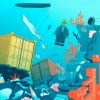 +10 +1
+10 +1When Shipping Containers Sink in the Drink
We’ve supersized our capacity to ship stuff across the seas. As our global supply chains grow, what can we gather from the junk that washes up on shore?
-
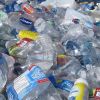 +20 +1
+20 +1Machine Learning Helped Scientists Create an Enzyme That Breaks Down Plastic at Warp Speed
Earth has a plastics problem, and not many great options to solve it. Plastic is everywhere: food, toiletries, and cleaning products come encased in it; our toothbrushes and children’s toys and disposable coffee lids are made of it; and we carry groceries and dispose of trash in bags of it. It’s impossible to avoid. Yet we don’t often think about the fact that these items will still be around hundreds of years from now.
-
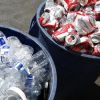 +4 +1
+4 +1California subpoenas ExxonMobil in probe of plastics waste
California’s attorney general on Thursday subpoenaed ExxonMobil as part of what he called a first-of-its-kind broader investigation into the petroleum industry for its alleged role in causing a global plastic pollution crisis, allegations that the company called meritless.
-
 +18 +1
+18 +1Pollution breakthrough as new enzyme helps ‘eat’ plastic used in drinks bottles
A new breakthrough could offer hope in the battle against plastic pollution - an enzyme which ‘eats’ plastic and could help to break down single-use drinks bottles. More than 400 million tons of plastic waste are produced each year, the overwhelming majority of which ends up in landfills, the University of Portsmouth researchers say.
-
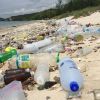 +4 +1
+4 +1Visible ocean plastics just the tip of the iceberg
While the billions of tons of plastic products produced in the "Plastic Age" of the last half-century have drastically changed the way we live for the better, the plastic waste that has made it into the environment is posing new challenges for nature.
-
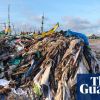 +20 +1
+20 +1Plastic summit could be most important green deal since Paris accords, says UN
World leaders will come together online and in Nairobi, Kenya, next week, in what is described as a “critical moment” in progress towards the first ever global treaty to combat plastic waste. Inger Andersen, director of the UN Environment Programme, said an agreement at the UN environment assembly could be the most important multilateral pact since the Paris climate accord in 2015.
Submit a link
Start a discussion




















